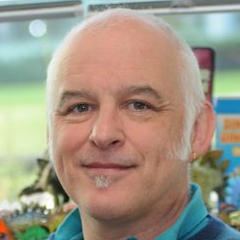You are not currently logged in. Please create an account or log in to view the full course.
First Steps
- About
- Transcript
- Cite
The Genetic Age
In this course, Professor Matthew Cobb (University of Manchester) walks us through the history of our ability to modify and manipulate the genetic code of individuals and populations around us. To do so, we begin by: (i) understanding what those first steps were, and how it supports modern society; before (ii) taking a look at how the public initially responded to these advancements; and then (iii) demonstrating how gene editing became more and more prevalent as the accuracy of techniques exponentially increased; which then follows onto (iv) understanding how the power of gene editing has given us unprecedented powers; (v) and then discussing how we have attempted to regulate and control scientific progress in this field; before finally (vi) looking at one of the most powerful tools in genetics we have ever developed.
First Steps
In the first mini-lecture, we learn about the history of manipulating genes. How have humans affected the environment and the genetic makeup of the individuals that survive in them? Even our hunter-gatherer ancestors changed the genes of a population by hunting ‘weaker’ organisms and breeding ones with higher milk production, or faster movement. The revolution in gene editing, we learn, came from the novel ability to mix viral and bacterial DNA, launching off an entire new field of biology. What powers has this enabled, and how has it integrated into society?
Cite this Lecture
APA style
Cobb, M. (2022, August 30). The Genetic Age - First Steps [Video]. MASSOLIT. https://massolit.io/courses/the-genetic-age
MLA style
Cobb, M. "The Genetic Age – First Steps." MASSOLIT, uploaded by MASSOLIT, 30 Aug 2022, https://massolit.io/courses/the-genetic-age

